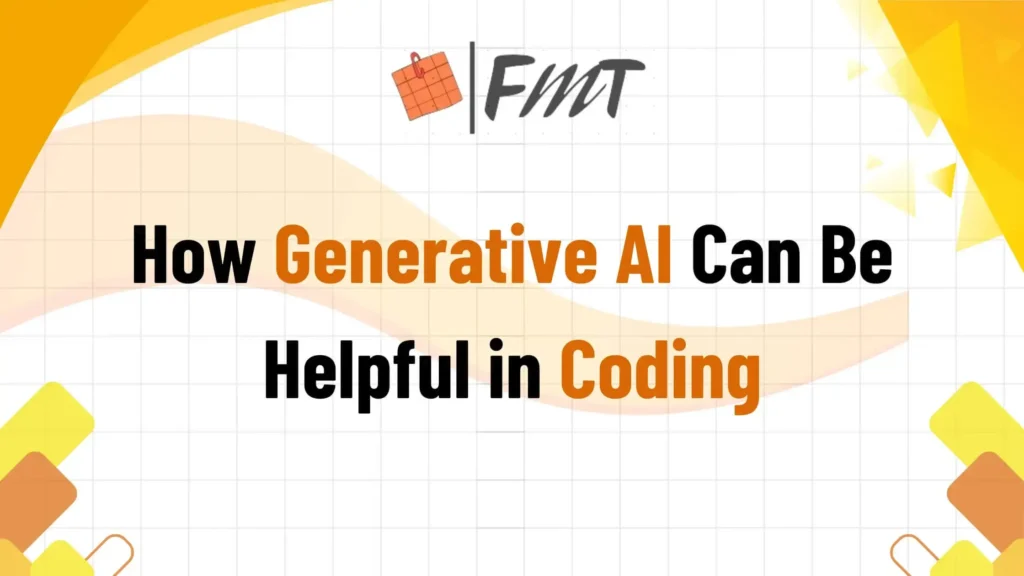A New Era of AI in Programming
Generative AI is changing industries across the board, including software development. From auto-suggesting code snippets to generating entire programs, technologies based on generative models are making coding faster, smarter, and more accessible. In this blog, we’ll look at how generative AI has changed the way developers write, debug, and optimize code, and what this means for the future of programming.
What is Generative AI?
Generative AI refers to artificial intelligence systems that can generate content, whether it’s text, images, audio, or code. These models, often built using large neural networks like transformers, learn patterns from massive datasets and use that knowledge to create new, coherent outputs.
In the context of coding, generative AI can write and suggest code, answer technical questions, explain functions, and even convert logic into syntax in real time.
Generative AI vs Traditional AI in Coding
| Feature | Traditional AI | Generative AI |
|---|---|---|
| Functionality | Rule-based or predictive | Content creation & suggestion |
| Role in Coding | Bug detection, code completion | Writing code, explaining logic, optimization |
| Learning Approach | Task-specific training | Trained on large-scale code and documentation |
| Flexibility | Limited to defined scenarios | Can handle broad and open-ended inputs |
Traditional AI helps automate repetitive tasks or analyze code patterns, whereas generative AI can participate in the creative aspects of development—helping you write and refine your code.
Real-World Tools Using Generative AI
🔧 GitHub Copilot
GitHub Copilot, powered by OpenAI’s Codex model, acts like an intelligent pair programmer. It suggests entire lines or blocks of code based on comments and context, accelerating development and reducing repetitive tasks.
Example Use Case: A developer types a comment like // function to filter even numbers—Copilot instantly generates a relevant Python or JavaScript function.
💬 ChatGPT
ChatGPT, widely used by developers, helps with explaining code, fixing bugs, converting code from one language to another, or even teaching concepts in plain language.
Example Use Case: A beginner can paste a chunk of code and ask, “What does this do?”—ChatGPT breaks it down step-by-step, like a tutor.
Key Benefits of Generative AI in Programming
1. 🚀 Faster Development
The time it takes to go from idea to code has been reduced by AI tools. Developers don’t have to write every line manually to swiftly prototype.
2. 🛠️ Bug Fixing
AI can find bugs, errors and sometimes recommend fixed code, which makes debugging more effective and less painful.
3. 📈 Code Optimization
Generative AI recommends cleaner, more efficient ways to achieve the same functionality, helping developers follow best practices.
4. 🎓 Learning & Upskilling
Beginners can learn from AI by asking for code explanations, project ideas, or guidance on how to structure applications.
5. 🔄 Cross-Language Translation
Tools like ChatGPT can translate code between languages (e.g., Python to Java), supporting developers working in multilingual environments.
Limitations and Ethical Concerns
Despite its strengths, generative AI in coding has a few caveats:
- Accuracy: AI may occasionally produce incorrect or inefficient code, especially for complex tasks.
- Over-reliance: New developers might become dependent on AI without fully understanding the underlying logic.
- Copyright Issues: Code generated by AI trained on open-source data may raise intellectual property questions.
- Security: AI-generated code may not always follow security best practices unless reviewed carefully.
The Future of AI-Assisted Programming
As AI continues to evolve, its role in software development will only expand. We may see:
- AI-driven project scaffolding
- Fully autonomous development environments
- AI that collaborates in real-time across large dev teams
- Deeper integration with DevOps workflows
However, the human role will remain critical—to validate, fine-tune, and innovate beyond what AI can imagine.
What We Learned
Generative AI is converting coding from a manual task to a collaborative experience for both humans and robots. Whether you’re a beginner learning Python or an experienced developer optimizing corporate software, generative AI tools like Gemini, Grok, ChatGPT and GitHub Copilot provide valuable support at every stage.
As these tools evolve, the key will be to use them properly, combining AI speed with human mind and creativity.
Start experimenting, stay curious, and code smarter with generative AI.




